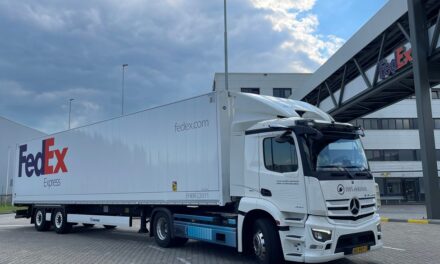
FedEx Express to buy 19 more Boeing 767 aircraft
FedEx Express has announced plans to buy an additional 19 Boeing 767-300F aircraft, and also convert four of its existing orders for 777F aircraft into equivalent 767 orders. The company has been restructuring its air fleet, particularly in North America, to take out aging Airbus and MD10 aircraft and replace them with more efficient B767s, and also to reduce or delay planned purchases of the intercontinental B777 freighters to respond to a cooling in the long-range international express market.
Last month, it announced plans for the early retirement of 24 aircraft in the US, on top of previous plans that will also see five Boeing 727s retired this year and 21 727s in 2013.
On Friday, the company said it has agreed with The Boeing Company to purchase the additional 767s, and convert two of its 777F orders in 2016 and two scheduled for 2017 into the shorter-range 767 aircraft.
FedEx said 19 of the additional 767s will be delivered from fiscal year 2015 up to 2019, replacing its MD10 and A310-200 aircraft.
The company said the change of plans would not affect capital spending levels, which would continue at $3.9bn in fiscal year 2013.
The new aircraft will be “substantially” more fuel efficient and reliable than those they are replacing, said the Memphis-based integrator. The 767s are expected to have a 30% better fuel efficiency and cut operating costs by more than 20%.
Costs are also saved by sharing spare parts with FedEx’s existing 757 aircraft as well as flight simulators.
“More profitable”
David J. Bronczek, president and chief executive officer of FedEx Express, said: “FedEx Express is positioning itself for more profitable growth by modernizing its aircraft fleet and better aligning its U.S. domestic air network to match current and anticipated shipment volumes.”
While it is cutting back on its plans for the 777F aircraft, FedEx Express is still in the process of taking on a further 24. The company already operates 19 of the long-range freighters.
Last month as parent company FedEx Corp issued its latest financial results, executives said the company was seeing a shift from premium air freight services to economy freight, and that customers were also generally shifting to both alternative ground and ocean transport as the global economy struggles.
The changes in the fleet structure for FedEx Express is designed to respond to customer demand, speed up key routes and push for double-digit margins in the company’s express services.
FedEx Expres saw its revenue up 3% in the latest quarter, compared to the same period last year, but the impairment charges related to the changes in its air fleet meant operating income dropped 34% year-on-year.












